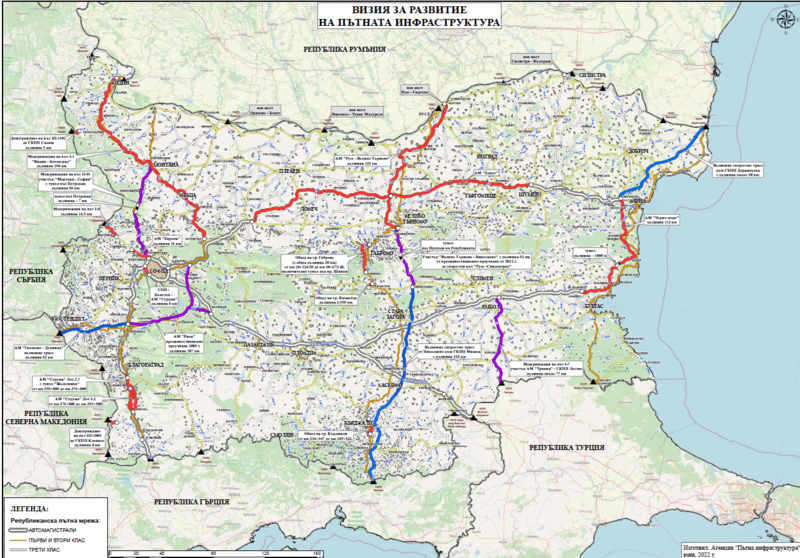Deputy Minister Penchev: Work has started on all strategic connectivity projects along the North-South axis
Deputy Minister Penchev: Work has started on all strategic connectivity projects along the North-South axis
By Ministry of Regional Development and Public Works
In the last six months, the Ministry of Regional Development and Public Works has started actual work on all strategic transport connectivity projects along the north-south axis. Public tenders for the development of advanced conceptual designs for each of these roads are about to be issued. This was announced by Deputy Minister Yavor Penchev at Sofia Economic Forum III.
Penchev said that the implementation of strategically important infrastructure projects should not be influenced by political bickering. “The pace at which work is proceeding on these three north-south routes is very fast and I assume that within the next six months we would have selected contractors for the design of the routes and for the elaboration of detailed development plans,” the deputy minister added. The implementation of these projects will have a positive impact on road safety, environmental protection, movement of people, goods and services. The dream of the leadership of the Ministry of Regional Development and Public Works is a developed road infrastructure that will allow the backward regions to be included in the economic map of Bulgaria and Europe, Penchev said.
He presented the interactive map with the plans for the development of the transport infrastructure of Bulgaria and the connected regions until 2040.
The Black Sea Motorway project with a design length of 104 km is at the most advanced stage. 3 options have been developed and submitted to the Ministry of Environment and Water and an opinion is already available. The motorway is part of the pan-European transport corridor No 8, which is the most direct link between the Adriatic and the Black Sea.
A key project is also the construction of a motorway from Vidin to Sofia, which will pass through a tunnel under the Petrohan pass and include the Struma Motorway. This is the EU’s priority transport corridor “Orient - Eastern Mediterranean”, connecting the countries of Central and Western Europe to the port of Thessaloniki. The implementation of the project will significantly facilitate transit traffic and boost the development of the economies of Romania, Bulgaria and Greece.
The road connectivity between Bulgaria and the Republic of North Macedonia will look completely different if we build a motorway along the Güeshevo - Kyustendil - Dupnitsa route, Yavor Penchev added. It will provide a fast connection between the Struma motorway and the border with the Republic of North Macedonia. According to preliminary data, this will be a 62 km long expressway. The idea is to continue with two more sections in the future - from Dupnitsa to Samokov and Ihtiman, to connect with the motorways “Trakia” and “Hemus”.
In the north-south direction the construction of the motorway “Ruse - Veliko Tarnovo” is important. It is part of the corridor from Bucharest to Alexandroupolis, which passes through Ruse, Veliko Tarnovo, the Hemus motorway, passes through a tunnel under the Balkan Mountains, crosses the motorways “Trakia” and “Maritsa” and reaches the border with Greece at the border checkpoint “Makaza”, and from there on Greek territory - to Alexandroupolis.
Asked about the Struma Motorway, deputy minister Penchev explained that for the section through the Kresna Gorge there is an Environmental Impact Assessment in force and a contractor has been selected, but the construction cannot start because, according to the European Commission’s guidance, a further check has to be made on the compliance of the issued Environmental Impact Assessment with the conservation objectives of the Kresna Protected Area. The preparation of these conservation objectives is the responsibility of the Ministry of Environment and Water. The Department has contracted them out to a commercial company, but the work will not be completed until the end of this calendar year. This will result in a delay of more than 2 years in the start of construction activities.






